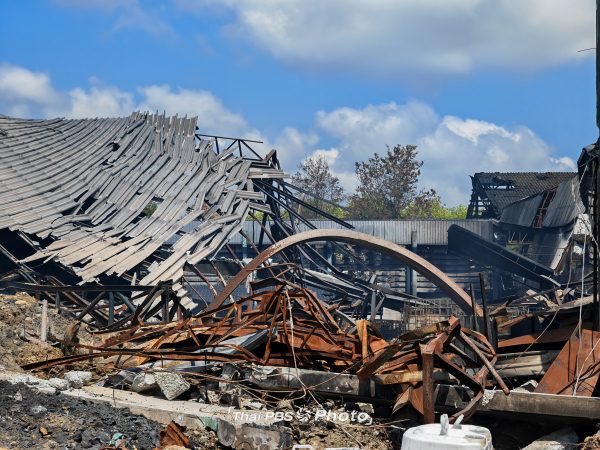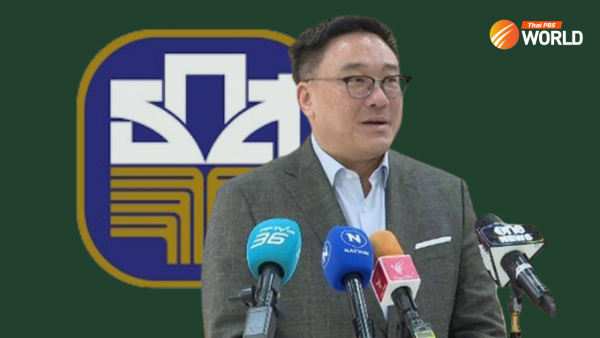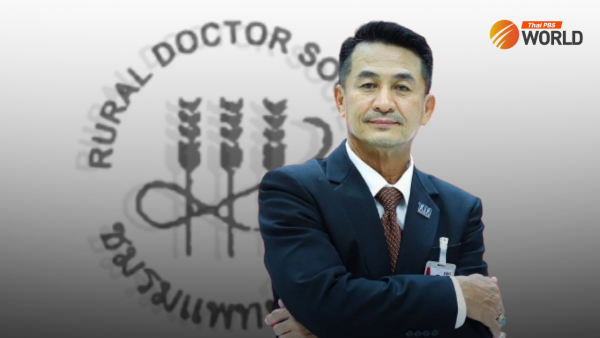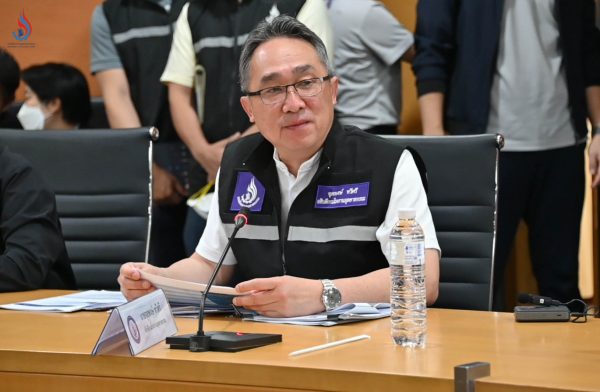Move Forward eyes new path to power in Thailand with local elections
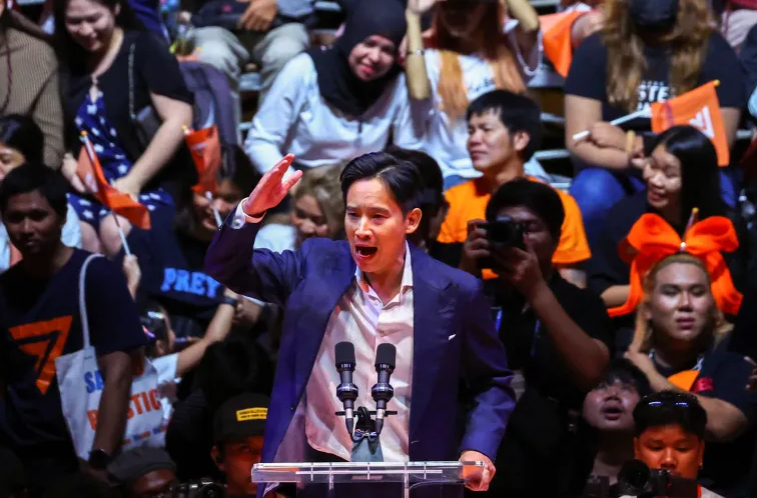
Politicians targeting powerful posts in provincial administrative organizations now have less than a year to prepare for nationwide local elections.
And with the poll only months away, it’s clear that many potential candidates are hoping to ride into power on the popularity of the Move Forward Party.
The reformist party won last year’s national election but failed to form a government.
“I’ve noticed that two types of political groups are reaching out to Move Forward,” said Olarn Thinbangtieo, a lecturer at Burapha University’s Faculty of Political Science and Law.
The first group, he said, is composed of new-generation politicians in well-developed provinces that have a significant percentage of middle-class families and individuals with a different mindset in their populations.
The second comprises local politicians with limited prominence in their respective provinces.
“The first type aspires to breathe positive change into society while the second hopes to dethrone formidable political rivals,” Olarn said.
What are PAOs?
Provincial Administrative Organizations (PAO) are the top tier of local administration in Thailand. Each of Thailand’s 76 provinces – excluding the capital, Bangkok – has its own provincial administrative organization.
Its key missions are to provide public services to locals in areas not taken care of by municipalities or subdistrict administrative organizations and to support government work.
In 2021, the government allocated 28.29 billion baht to 76 provincial administrative organizations for their four-year tenure.
Nakhon Ratchasima PAO received the largest slice of that allocation with 2.3 billion baht. The Sing Buri PAO got the smallest slice – pocketing just 118 million baht.
The size of the budget allocated depends on the size of the province and the scope of work its PAO is responsible for.
Each PAO has one chief executive, who is elected. A PAO can, however, have between 24 and 48 elected councilors depending on the population size of the province it serves.
Chief executives of PAOs head the provinces’ executive branch, while councilors form the legislative branch.
The former formulate local development plans, draw up budget plans, and compile performance and spending reports while the latter pass legislation that covers provinces and keeps local executives in check.
Elected chief executives and councilors of PAOs serve a four-year term, with their total tenure limited to two consecutive terms.
Each PAO chief executive is paid 75,530 baht a month, while each councilor receives a salary of 19,400 baht.
With the tenure of PAO incumbents due to expire late this year, the next election of chief executives and councilors must be held no later than February 3, 2025.
Significance in national politics
Political clans have traditionally sought to dominate provincial administrative organizations because holding the top post gives them connections and influence in lower-tier local administrative bodies like municipalities and subdistrict administrative organizations.
“With such large budgets in hand, PAOs can support the smaller units and win political partners,” Olarn pointed out.
The smaller local administrative bodies are vital when it comes to mustering votes at election time for their partners higher up in the political food chain.
National politicians are thus keen to have allies in provincial administrative organizations to boost their chance of being elected to Parliament.
Olarn’s research reveals that political clans like the Kunplomes have a lot at stake during elections for PAO chief executives.
This is particularly significant for the Kunplome family, which has relied on Chon Buri as its political support base for decades.
Failure to win the top seat in the Chon Buri PAO at the next election could be catastrophic for the family’s political influence.
Local elections in Thailand have always been influenced by local systems of patronage.
Choices made by voters at the local level are, therefore, often very different from those made at the national level.
For example, despite its popularity at the national level, Move Forward’s predecessor Future Forward failed badly in elections for PAO top seats in December 2020.
Back then, its local arm known as the Progressive Movement fielded candidates for chief executive in as many as 42 provinces but did not win a single seat.
Move Forward tries again
Despite the bitter defeat in 2020, Move Forward has signaled it will put up a fierce fight for PAO chief executive and councilor seats at the coming election.
Over the past year, the party’s senior figures have toured provinces across Thailand and held regional meetings to seek the strongest and best-qualified candidates.
Move Forward has already named Lersak Leenanithikul as its candidate for chief-executive of Phuket PAO.
Lersak is a deputy director at Vachira Phuket Hospital and is well-known among the province’s residents. Aside from those qualifications, Lersak may be able to use Move Forward’s popularity to his advantage. Every Phuket MP elected in last year’s national poll came from the Move Forward Party.
Move Forward also looks set to field Pun-Arj Chairatana, a former executive director of the National Innovation Agency, as its candidate for Chiang Mai PAO chief.
Pun-arj was chosen even after Tassanee Buranupakorn – who hails from a powerful Chiang Mai political clan – quit the Pheu Thai Party to join Move Forward earlier this year.
Olarn believes Move Forward shunned Tassanee because Chiang Mai is increasingly home to people from other parts of Thailand who don’t share the city’s traditional political allegiances.
New political phenomenon in the making?
Olarn said that political clans no longer have tight control over populations in large provinces, with residents now more likely to vote according to candidates’ merits rather than their connections.
“Move Forward has a chance to create a new phenomenon in big provinces like Chiang Mai, Phuket, and those surrounding Bangkok,” the political expert said.
But rural provinces where patronage, connections, relationships, and nepotism matter more than policies will likely be immune to this new phenomenon, he added.
“Thais in rural and urban areas have a different voting culture,” Olarn concluded.
Move Forward’s chief advisor Pita Limjaroenrat has remarked that local elections are important because they act to decentralize power and distribute development benefits more fairly across Thailand.
“The more decentralized, the less pollution and inequality,” Pita quipped recently.
By Thai PBS World’s Political Desk



